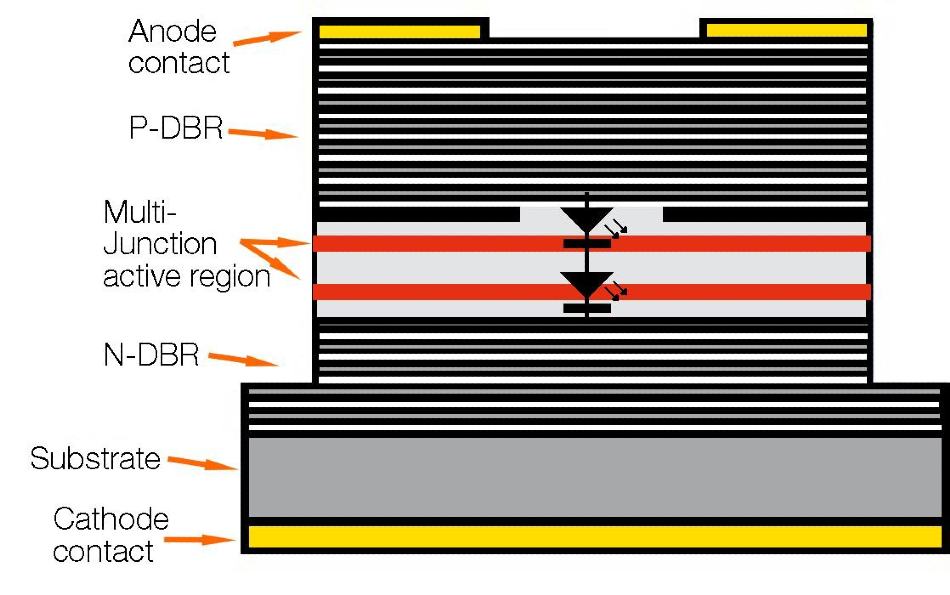Vixar, part of the global, high-tech lighting company Osram, will launch its leading-edge multi-junction VCSEL technology with an impressive 60% power conversion efficiency at 940 nm. Following the recent acquisition of Vixar, Osram is setting new standards in the VCSEL industry, including the demonstration of dual- and triple-junction VCSELs that provide lower current, increased efficiency and higher speed. Vixar will showcase its game-changing multi-junction VCSEL technology at Photonics West in booth 5547 at the Moscone Center in San Francisco, February 4-6, 2020.
 The new multi-junction VCSEL boasts a world-record 60% power conversion efficiency at 940 nm, significantly higher than the single-junction performance of 53%. Image Credit: Osram
The new multi-junction VCSEL boasts a world-record 60% power conversion efficiency at 940 nm, significantly higher than the single-junction performance of 53%. Image Credit: Osram
The VCSEL market continues to grow at a fast pace due to the technology’s numerous benefits, including outstanding beam quality, simple design and compact size. VCSEL powers many consumer applications such as 3D cameras and facial recognition in mobile devices, as well as industrial applications like short-range LiDAR, machine vision and robotics. There is also potential for use in automotive applications such as in-cabin sensing.
The new multi-junction technology represents the next leap forward for the VCSEL industry. The technology can be applied to products in the company’s portfolio and boasts slope efficiencies of 2 W/A in dual junction and 3 W/A in triple junction. It offers a world-record 60% power conversion efficiency—significantly higher than the comparable single-junction’s performance of 53% peak wall plug efficiency.
The multi-junction VCSEL offers many significant benefits to customers. For example, greater efficiency reduces the overall thermal load. Higher power density leads to a dramatically reduced chip and package size, enabling simpler optic designs and system architecture.
The higher slope efficiency means that a much lower pulsing forward current is required to reach the same optical power as a single-junction VCSEL. The advantage for customers is greatly reducing the current required, which improves the switching speed of the driver. This reduction of current allows the VCSEL to deliver a remarkable one nanosecond pulse for tens or even hundreds of watts.
“Our record-setting multi-junction technology Fnow puts us in a leading position in the VCSEL market” said Klein Johnson, Co-Founder and CTO of Vixar, a subsidiary of Osram. “Our VCSEL technology solves a critical need for customers and is poised to play a key role in shaping the next generation of consumer, industrial and automotive applications.”